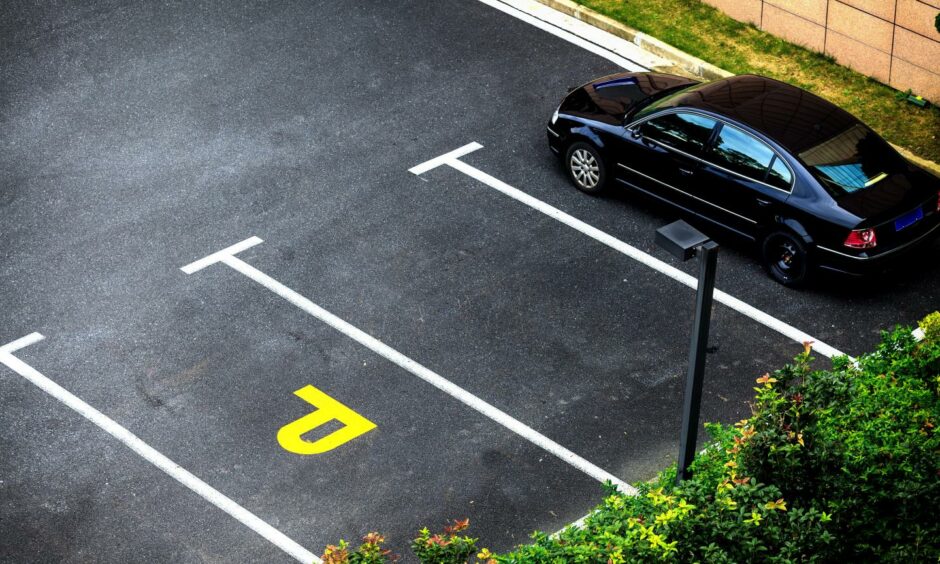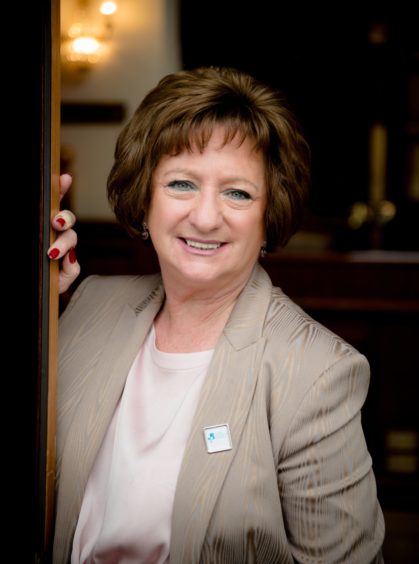The new president of the Scottish Chambers of Commerce (SCC) had a return to bustling city centres, a mooted oil and gas windfall tax and the workplace parking levies uppermost in his mind on a visit to the north-east.
Stephen Leckie, who is also chairman and chief executive of the Crieff Hydro Family of Hotels, was in Aberdeen to gauge the mood of the region’s businesses.
Unsurprisingly in an area where so many jobs are tied up in the oil and gas industry, the comments he heard about a potential tax on producers were wholly negative.
Who’s in favour?
Under Labour’s plans, firms would be forced to pay higher corporation tax for a year to fund £1.2 billion of help for UK households.
The liberal democrats and environmental groups are also in favour of the so-called windfall tax.
Scotland’s Energy Secretary, Michael Matheson, has said he is “not against the idea entirely”.
But he also said it must be delivered in a “fair and reasonable way”.
It echoes similar comments by First Minister Nicola Sturgeon who said while she is not against the idea, the approach must be “fair”.
BP chief executive Bernard Looney has warned a windfall tax could hurt investment and gas production, making the UK more reliant on imports.
Mr Leckie, who became SCC’s president at the start of this year, said: “There are some big companies in this area that would not be able to reinvest.
“Yes, they are currently making millions of pounds of profits but the damage that would be caused by a windfall tax would be huge.”
Threat to investment
These companies are investing a fortune in the energy transition, to make their operations greener as well as diversify, and they will be unable to do so if they are forced to pay more tax, he said.
Mr Leckie also said it was vital for the economic recovery to get people working in offices again to help neighbouring cafes, bars, restaurants and shops.
On the parking levy, he said: “It will disincentivise folk travelling to work in our towns and cities.
“A circular economy is so important. If we add more tax on car users, where is the incentive to encourage people back into our towns and cities?
“It’ll only lead to more empty buildings, more empty shops, restaurants and bars.
“Why would anyone then want to invest in our town and city centres?”
The Scottish Government is handing powers to councils to introduce workplace parking levies.
People wishing to park at their workplace will likely face a charge, unless their employer decides to pay the cost itself.
The legislation is aimed at cutting the number of drivers on roads and cleaning up the environment.
Reflecting on his first visit to Aberdeen and Grampian Chamber of Commerce earlier in the day, when he heard about some of the pressures local firms are facing, Mr Leckie said: “This area has to be the engine room of a successful economic recovery.
“The amount of money being invested here is huge, such as with the expansion at Aberdeen harbour.”
But there are big challenges – such as rising costs and the staff recruitment and retention difficulties faced by many firms – and tackling them needs a strong partnership between government and private enterprise, he said.
A similar approach is required to strengthen connectivity and make sure the region is fully able to share in the benefits of economic recovery, he added.
A circular economy is so important. If we add tax more tax on car users, where is the incentive to encourage people back into our towns and cities?”
Stephen Leckie, president, Scottish Chambers of Commerce.
Meanwhile, SCC chief executive Liz Cameron has highlighted business concerns about the new workplace parking levy in a letter to MSPs
A motion to annul the levy is due to be debated at a meeting of the Scottish Parliament’s energy and transport committee next week (February 22).
Ms Cameron said: “The Scottish Chambers of Commerce have consistently opposed the introduction of a workplace parking levy due to the additional financial burden it places on businesses and their employees.
“The business backlash to these proposals from within our membership has been substantial.
“Businesses are incredulous they are facing yet more upfront costs, just as the economy is beginning to recover from the impact of the Covid-19 pandemic and employers are getting back on their feet.”



